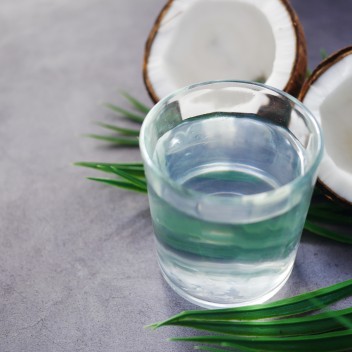Non-Alcoholic Beverages



Introduction
When it comes to authenticity testing of non-alcoholic beverages such as fruit juices, coconut water, soft drinks and CO2 containing beverages, or flavored water the detection of the undeclared additions as well as the naturalness is generally of most interest. Since fruit production and price depend on imponderable factors the room for fraud, adulteration and mislabeling is high. The problem is focused on addition of cheap sweeteners, addition of organic acids, violation of the NFC (Not From Concentrate) declaration and mislabeled geographical origin. The last point also applies to mineral waters where addition of technical CO2 is another issue.
Imprint Analytics determines the stable carbon isotope ratio of CO2 in mineral water. Natural CO2 emerges from the inner earth and the carbon isotope ratio reflects the conditions of the point of exploitation of the water. Addition of exogenous CO2 is not forbidden but must be declared. The carbon isotope ratios provide clear proof of added CO2 in mineral waters. The analytical method comprises the carbon isotopic analysis of CO2 in mineral water by Isotope Ratio Mass Spectrometry (IRMS).
Imprint Analytics determines the isotopic values of oxygen and hydrogen, of the water from natural fruit juices. The method differentiates the natural from the concentrated juices. The interpretation of the results is based on the different isotopic signature of the water derived from the fruit and the local meteoric water. The analytical method comprises the oxygen and the hydrogen isotopic analysis of the fruit juice water, using Isotope Ratio Mass Spectrometry (IRMS).
Imprint Analytics determines the stable carbon isotope ratio of sugars and pulp of fruit juices. Plants such as sugar cane belong to the C4 metabolic pathway. Measuring the stable carbon isotope ratio of sugars from a fruit juice or coconut water and comparing the values to the stable carbon isotope ratio of the juice pulp enables the detection of added C4-sugars. The analytical method comprises the carbon isotopic analysis of the juice sugars and pulp using Isotope Ratio Mass Spectrometry (IRMS).
Imprint Analytics determines the deuterium distribution in ethanol produced after fermentation of fruit juice sugars. Plants such as sugar beet belong to the C3 metabolic pathway, similar to many fruits. Measuring the deuterium distribution enables the detection of C3 origin of sugars which are added to fruit juices or coconut waters. The method enables measurement of the site-specific deuterium isotope ratios in ethanol obtained by fermentation of the fruit juice sugars, by Nuclear Magnetic Resonance (SNIF-NMR©).
Addition of exogenous citric and malic acids to fruit juices is a common adulteration practice. Imprint Analytics determines the stable carbon isotope ratio of the fruit juices’ organic acids and sugars. This approach is based on the isotopic composition differences of acids and sugars, which provide an internal calibration avoiding the absolute values. The analytical method comprises the carbon isotopic analysis of the fruit juice organic acids and sugars, using Isotope Ratio Mass Spectrometry (IRMS).
The AIJN Reference Guidelines include authenticity criteria for a wide range of fruit juices and pulps. Our testing methods follow these Reference Guidelines and we assess authenticity with those criteria as well.
| Norm | Test |
| ENV 12141 | Stable oxygen isotope ratio (18O/16O) of water from fruits juices by IRMS |
| ENV 12142 | Stable hydrogen isotope ratio (2H/1H) of water from fruits juices by IRMS |
| ENV 12140 | Stable carbon isotope ratio (13C/12C) of sugars from fruits juices by IRMS |
Ready to start?
Testing doesn't have to be difficult. We’ve got your back!
With us you get the easiest way to the best results!
Book a Free ConsultationEmail Us
Call Us

